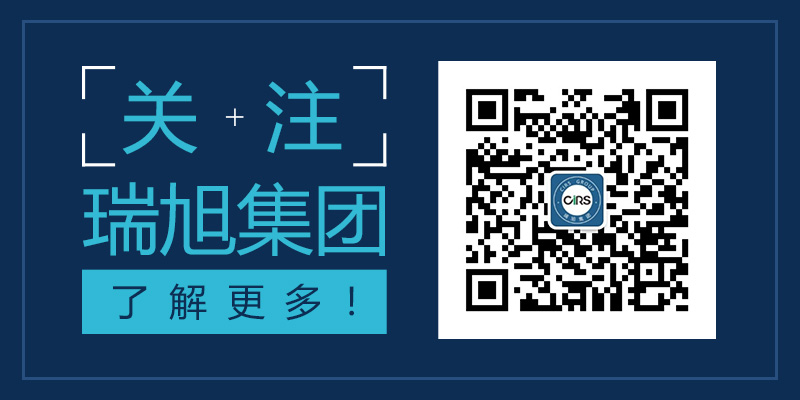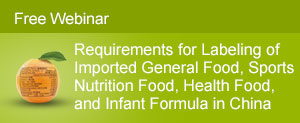News show that there are 30% of all alcoholic beverages consumed globally is adulterated and maybe the percentage is even higher in China.
For preventing adulterated alcoholic beverages trading in China market, Imported Alcoholic Beverages Anti-counterfeiting Traceability Management System was firstly established in Shanghai Free Trade Zone. It was jointly set up by Shanghai Exit-Entry Inspection and Quarantine Bureau (CIQ), Shanghai Municipal Commission of Commerce, Shanghai Wine Monopoly Bureau and China (Shanghai) Pilot Free Trade Zone Administration.
This system adopts the Radio Frequency Identification (RFID) technology additionally on the basis of used two-dimension code. All information regarding the alcoholic products can be found by consumer, such as manufacturer, original country, importer, etc.
Now, Imported Alcoholic Beverages Anti-counterfeiting Traceability Management System has been applied to imported wine trading at Waigaoqiao International Exhibition and Trading Center of Wine and Beverage. Meanwhile, it will expand to other member units of Waigaoqiao International Exhibition and Trading Center of Wine and Beverage in the second half of this year.
It would be very helpful to protect the legal rights of legitimate business and offer Chinese consumers the rights to learn the truth.
Reference
http://www.shciq.gov.cn/xwzx/mtbd/201407/t20140704_39106.shtml
Other Information Regarding Imported Alcoholic Beverage May Concern
According to information published by the General Administration of Quality Supervision, Inspection and Quarantine of the People's Republic of China (AQSIQ) and compiled by CIRS’s food team regulatory, more than 1045 tons of imported alcoholic beverages have been rejected by China Custom between March 2012 and May 2014 (please refer to the table at the end of this article). Most of these alcoholic beverages were imported from France, Spain, Germany, Italy, Argentina, Chile, Australian and New Zealand.
Why the imported alcoholic beverages were destroyed or returned by China Custom?
There are five aspects which have been highlighted as follows
1. Unapproved food additives
2. Unapproved nutrition enrichment
3. Incompliant food label
4. Unqualified organic inspection, physical and chemical indexes or microbiological index
5. Exceed shelf-life, leak of certificates, substandard packing, etc.
If you want to export alcoholic beverage into China successfully, it is necessary to comply with China national standards and regulations strictly. Specific information regarding food regulatory compliance in China can be found here.
Regulations and China Food Safety National Standards for Alcoholic Beverage Compliance
1. GB 2760-2011 Food Safety National Standards for the Usage of Food Additives(CN version free download)
2. GB 14880-2012 Food Safety National Standards for the Usage of Nutrition Enrichment (CN version free download)
3. GB 7718-2011 Food Safety National Standards for General Rules for the Labeling of Prepackaged Food(CN version free download)
4. GB 28050- 2011 Food Safety National Standards for General Rules for Nutrition Labeling of Prepackaged Foods(CN version free download)
5. GB 10344-2005 Food Safety National Standards for General Standard for the Labeling of Prepackaged Alcoholic Beverage (CN version free download)
6. GB 2761-2011 Food Safety National Standard for Maximum Levels of Mycotoxins in Food (CN version free download)
7. GB 2762-2012 Food Safety National Standard for Maximum Levels of Contaminant in Food(CN version free download)
Alcoholic Beverage Product Categories and Corresponding National Standards
Other Information Regarding Imported Alcoholic Beverage May Concern
According to information published by the General Administration of Quality Supervision, Inspection and Quarantine of the People's Republic of China (AQSIQ) and compiled by CIRS’s food team regulatory, more than 1045 tons of imported alcoholic beverages have been rejected by China Custom between March 2012 and May 2014 (please refer to the table at the end of this article). Most of these alcoholic beverages were imported from France, Spain, Germany, Italy, Argentina, Chile, Australian and New Zealand.
Why the imported alcoholic beverages were destroyed or returned by China Custom?
There are five aspects which have been highlighted as follows
1. Unapproved food additives
2. Unapproved nutrition enrichment
3. Incompliant food label
4. Unqualified organic inspection, physical and chemical indexes or microbiological index
5. Exceed shelf-life, leak of certificates, substandard packing, etc.
If you want to export alcoholic beverage into China successfully, it is necessary to comply with China national standards and regulations strictly. Specific information regarding food regulatory compliance in China can be found here.
Regulations and China Food Safety National Standards for Alcoholic Beverage Compliance
1. GB 2760-2011 Food Safety National Standards for the Usage of Food Additives(CN version free download)
2. GB 14880-2012 Food Safety National Standards for the Usage of Nutrition Enrichment (CN version free download)
3. GB 7718-2011 Food Safety National Standards for General Rules for the Labeling of Prepackaged Food(CN version free download)
4. GB 28050- 2011 Food Safety National Standards for General Rules for Nutrition Labeling of Prepackaged Foods(CN version free download)
5. GB 10344-2005 Food Safety National Standards for General Standard for the Labeling of Prepackaged Alcoholic Beverage (CN version free download)
6. GB 2761-2011 Food Safety National Standard for Maximum Levels of Mycotoxins in Food (CN version free download)
7. GB 2762-2012 Food Safety National Standard for Maximum Levels of Contaminant in Food(CN version free download)
Alcoholic Beverage Product Categories and Corresponding National Standards
| Index | Alcoholic beverage product category | National standard |
| 1 | Beer | GB 4927-2008 |
| 2 | Wines | GB 15037-2005 |
| 3 | Chinese rice wine | GB/T 13662-2008 |
| 4 | Milk wine | GB/T 23546-2009 |
| 5 | Brandy | GB/T 11856-2008 |
| 6 | Whisky | GB/T 11857-2008 |
| 7 | Vodka | GB/T 11858-2008 |
| 8 | fermented alcoholic drink | GB 2758-2012 |
| 9 | Distilled spirits | GB 2757-2012 |
| 10 | Integrated alcoholic beverage (Lu Jiu) | GB/T 27588-2011 |
Statistics on Rejections of Imported Alcoholic Beverage from 2012 to 2014
Compiled by CIRS
| Time | Weight(tons) | Batches |
| Mar 2012 | 61 | 51 |
| Apr 2012 | 5 | 17 |
| May 2012 | 273 | 18 |
| Jun 2012 | 3 | 5 |
| Jul 2012 | 4 | 23 |
| Aug 2012 | 22 | 24 |
| Sep 2012 | 14 | 16 |
| Oct 2012 | 4 | 8 |
| Nov 2012 | 20 | 25 |
| Dec 2012 | 16 | 48 |
| Jan 2013 | 41 | 36 |
| Feb 2013 | 26 | 27 |
| Mar 2013 | 22 | 9 |
| Apr 2013 | 107 | 17 |
| May 2013 | 34 | 13 |
| Jun 2013 | 9 | 14 |
| Jul 2013 | 109 | 35 |
| Aug 2013 | 18 | 59 |
| Sep 2013 | 6 | 8 |
| Oct 2013 | 65 | 37 |
| Nov 2013 | 19 | 14 |
| Dec 2013 | 41 | 27 |
| Jan 2014 | 9 | 27 |
| Feb 2014 | 29 | 16 |
| Mar 2014 | 15 | 20 |
| Apr 2014 | 48 | 24 |
| May 2014 | 25 | 19 |
| Total | 1045 | 637 |
If you would like to get more information, please send us an email.
Contact
Ms. Alice Yang,Food & Health Products, CIRS China
11F Dongguan Building, 288 Qiuyi Road, Binjiang District, Hangzhou, China, 310020
Tel : +86 571 8720 6555 | Fax : +86 571 8720 6533
Email:Alice.Yang@jianzaoshiwang.cn
11F Dongguan Building, 288 Qiuyi Road, Binjiang District, Hangzhou, China, 310020
Tel : +86 571 8720 6555 | Fax : +86 571 8720 6533
Email:Alice.Yang@jianzaoshiwang.cn






